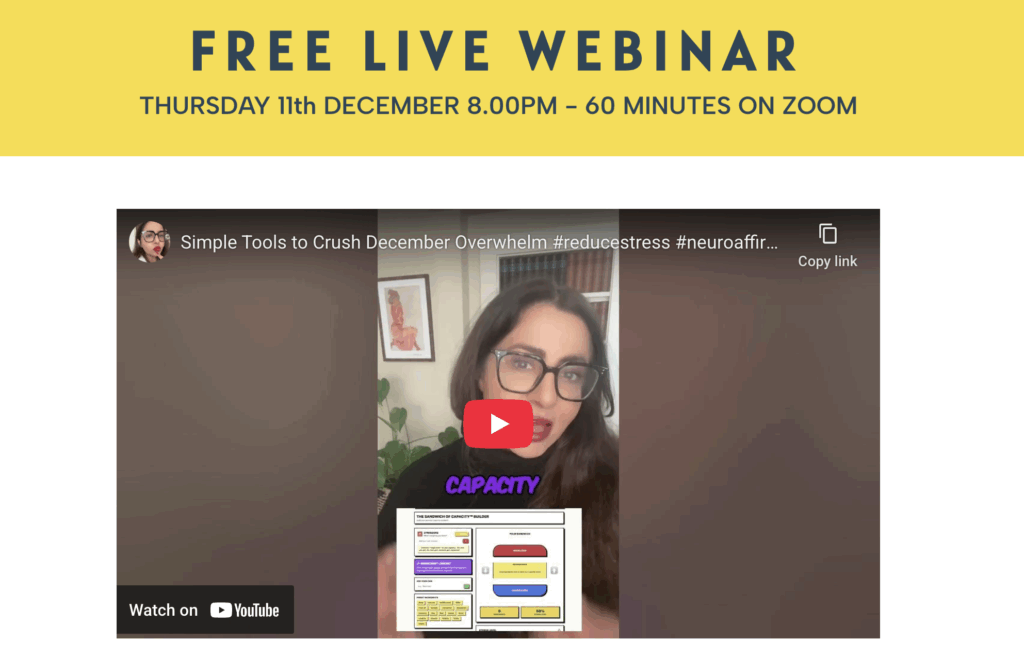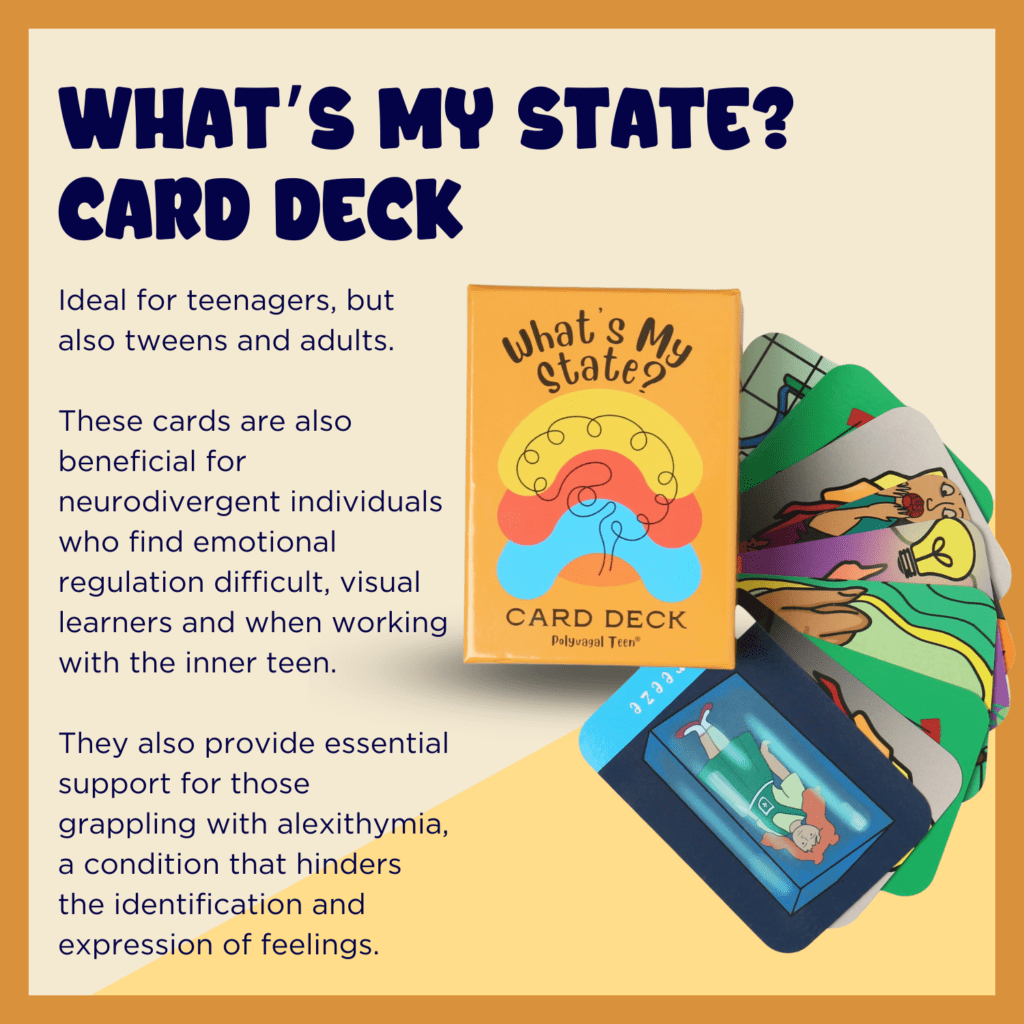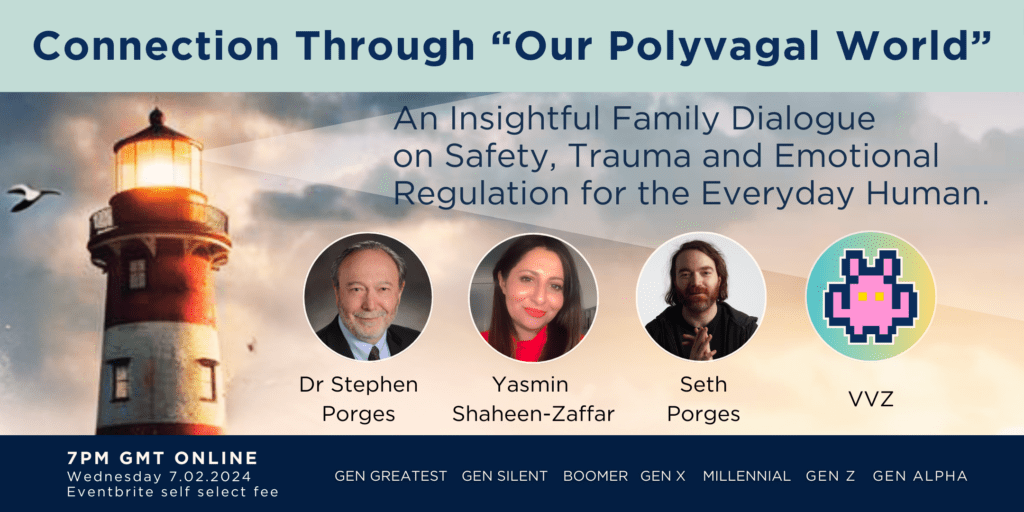Home
Polyvagal Theory Made Easy
- for those who want less stress in their life.
Imagine life with less stress and fewer spirals. Less miscommunication, more connection, and faster recovery after blow-ups – sounds good, right? Polyvagal theory helps you turn chaos into clarity with emotional regulation tools you can use today. That means fewer flare-ups, quicker recoveries, and steadier relationships. Because when you understand your nervous system, you can change the moment – and build stronger, more authentic relationships.
At Polyvagal Teen®, we make polyvagal theory simple and accessible for teens, tweens, families, educators, and practitioners. So you can spot states, respond clearly, and build steadier, happier days – at home, in classrooms, and in everyday life. Polyvagal theory explains why behaviour can switch so fast – and how to return to connection and practical, in-the-moment tools.
Begin with the free R.U.D Process®: a one-page guide to increasing self-awareness and diffusing tough moments.
What is polyvagal theory?
What we do
We turn polyvagal theory into teen-friendly, evidence-informed tools for nervous system regulation – without jargon or shame. As a result, you get resources that work in real life, not just on paper.
First, session-ready resources: printable worksheets, visuals, scripts, and cards teens actually use.
In addition, micro-practices: quick steps for transitions, meltdowns, shutdowns, and burnout.
Moreover, Our flagship “Glad We Talked – Finding My Steady” program. This offers guided learning: short videos and mini-lessons in plain language.
Furthermore, training and workshops: trauma-informed and neuro-affirming sessions for schools and services.
Finally, for practitioners: client-ready handouts and interventions you can use tomorrow.
In short, we help you notice patterns, put tough moments into words, and pick one helpful next step. Over time, that means fewer flare-ups, quicker recoveries, and steadier relationships through co-regulation and practice.
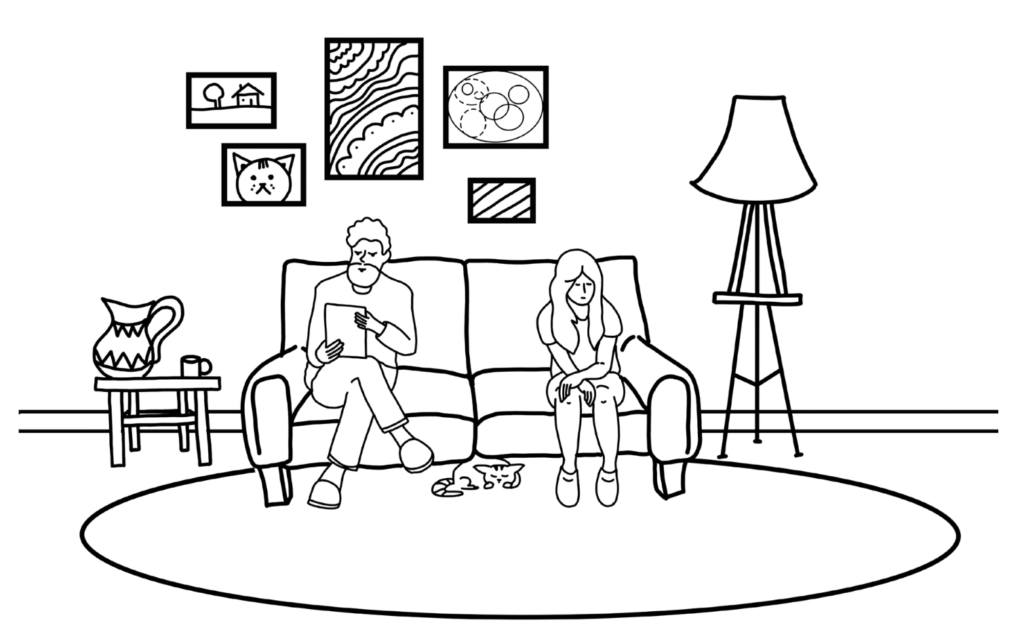
Do any of these challenges sound familiar to you?
- Do your reactions get out of hand - even when you know how you “should” respond?
- Is your teen or tween unpredictable, angry, or unmotivated - and you’re not sure why?
- Want to be ready for the teen years with emotional regulation strategies that actually help?
- As a teacher, does emotional contagion spread through your class or corridor?
- Are you a parent, educator, or wellbeing practitioner looking for polyvagal-informed tools to make everyday life steadier?
Polyvagal theory principles can help you.
Who polyvagal theory helps: wellbeing practitioners, families & parents, educators, & organisations.
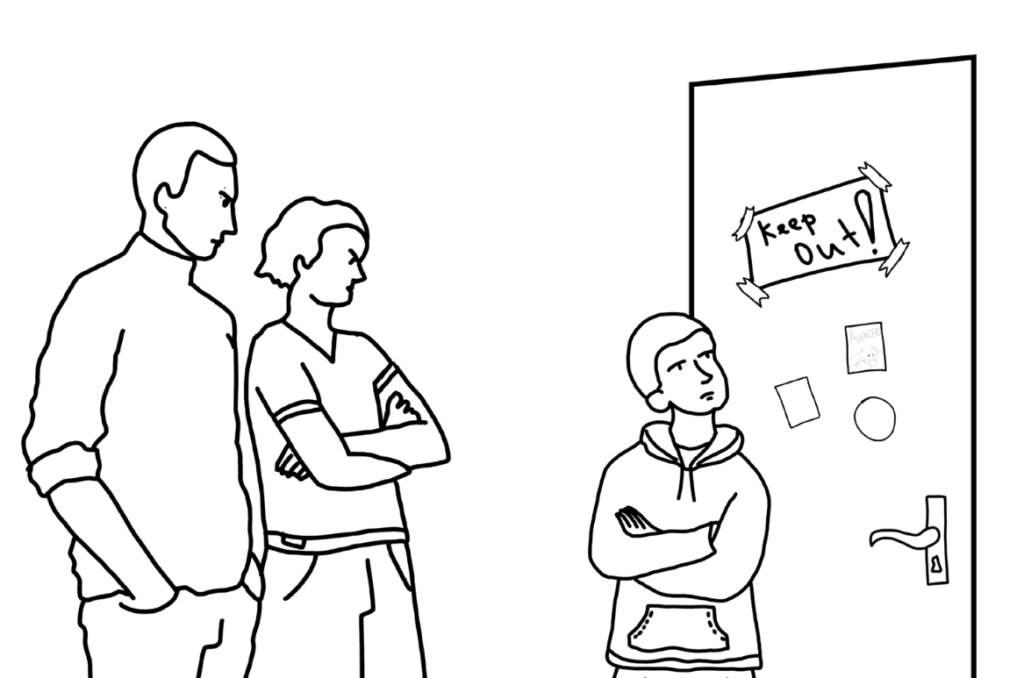
Whether you live with teens or work with them - in families, classrooms, clinics, or services - Polyvagal Teen® gives you simple, teen-friendly tools you can start using today.
We Work With

Wellbeing Practitioners
Whether you are a counsellor, coach, psychologist, G.P, youth worker or working in CAMHS, community services - we provide session-ready tools for teens, emerging adults, and families. Engagement dips when clients feel overwhelmed or shut down. So, you need prompts and micro-practices that open the conversation quickly, fit short sessions, and transfer to home and school. We provide: session structures, state-spotting tools, and take-home practices for teens, emerging adults, and families.

Organisations (services, charities, trusts)
Consistent, polyvagal-informed practice across teams.Consistent, polyvagal-informed practice across teams. Services want fewer incidents, better safeguarding conversations, and approaches that survive staff turnover. Consequently, tools must be policy-friendly and usable across roles - from leadership to front-line. We provide: accessible training, shared language, and resources that embed co-regulation and emotional regulation.

Educators (schools, AP, SEND)
Polyvagal theory for classrooms and corridors that stay steadier. When stress spikes, emotional contagion can ripple through a class in seconds. Therefore, staff need a shared approach that’s practical, inclusive, and doable with limited time. We provide: corridor-friendly visuals, regulation routines, and team language that reduce behaviour incidents and burnout.

Families (parents & caregivers)
Polyvagal-informed tools for everyday family life.
Mornings explode, homework derails, bedtimes stretch. You know how you “should” respond - but in the moment, it’s hard.
Because stress is contagious, one nervous system can set the tone for everyone.
We provide: fridge-friendly visuals and simple scripts to calm the room and try one next step - especially with neurodivergent teens and tweens.
Support For Neurodivergent Experiences - How Can You Get Started?

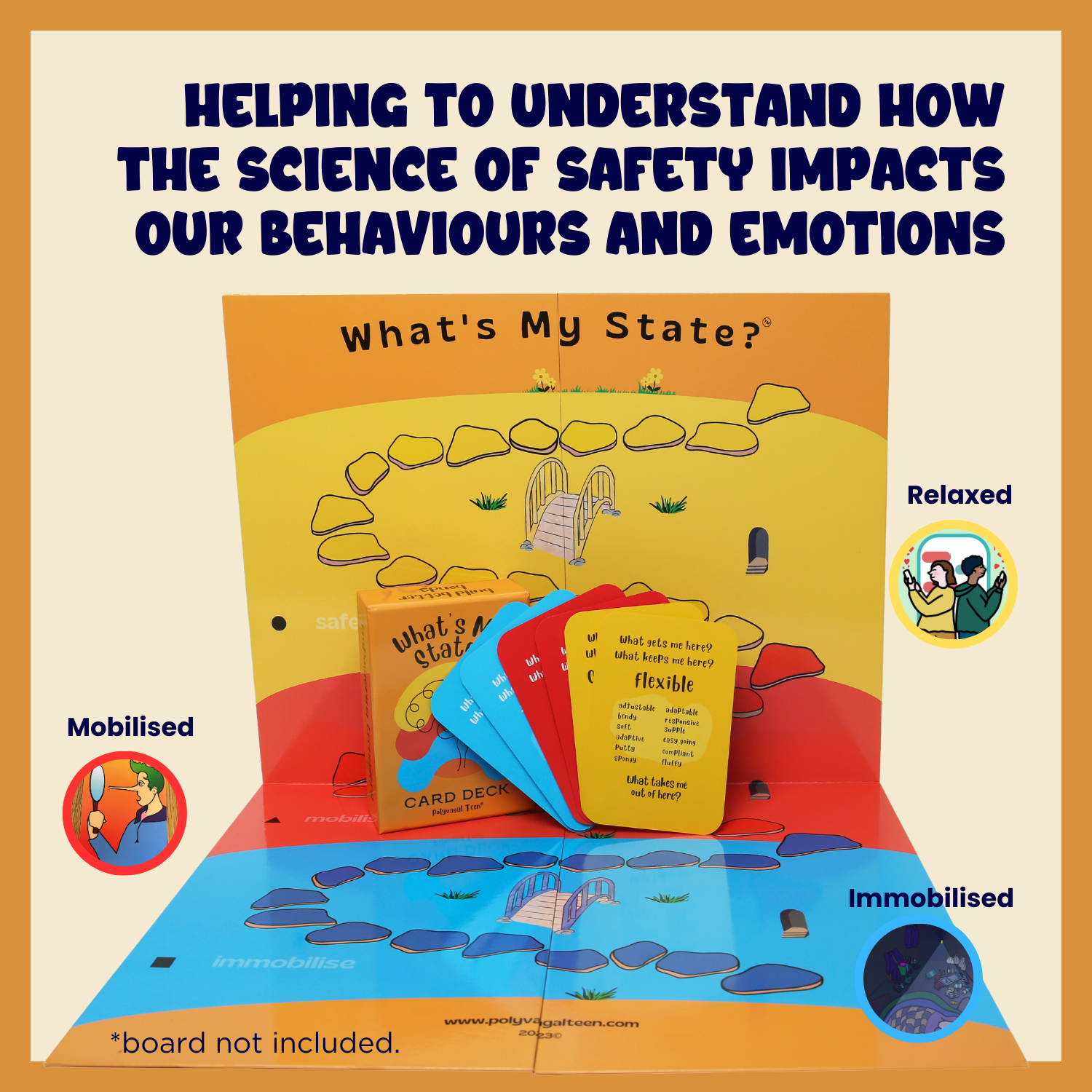
Purchase Your Card Deck or Toolbag

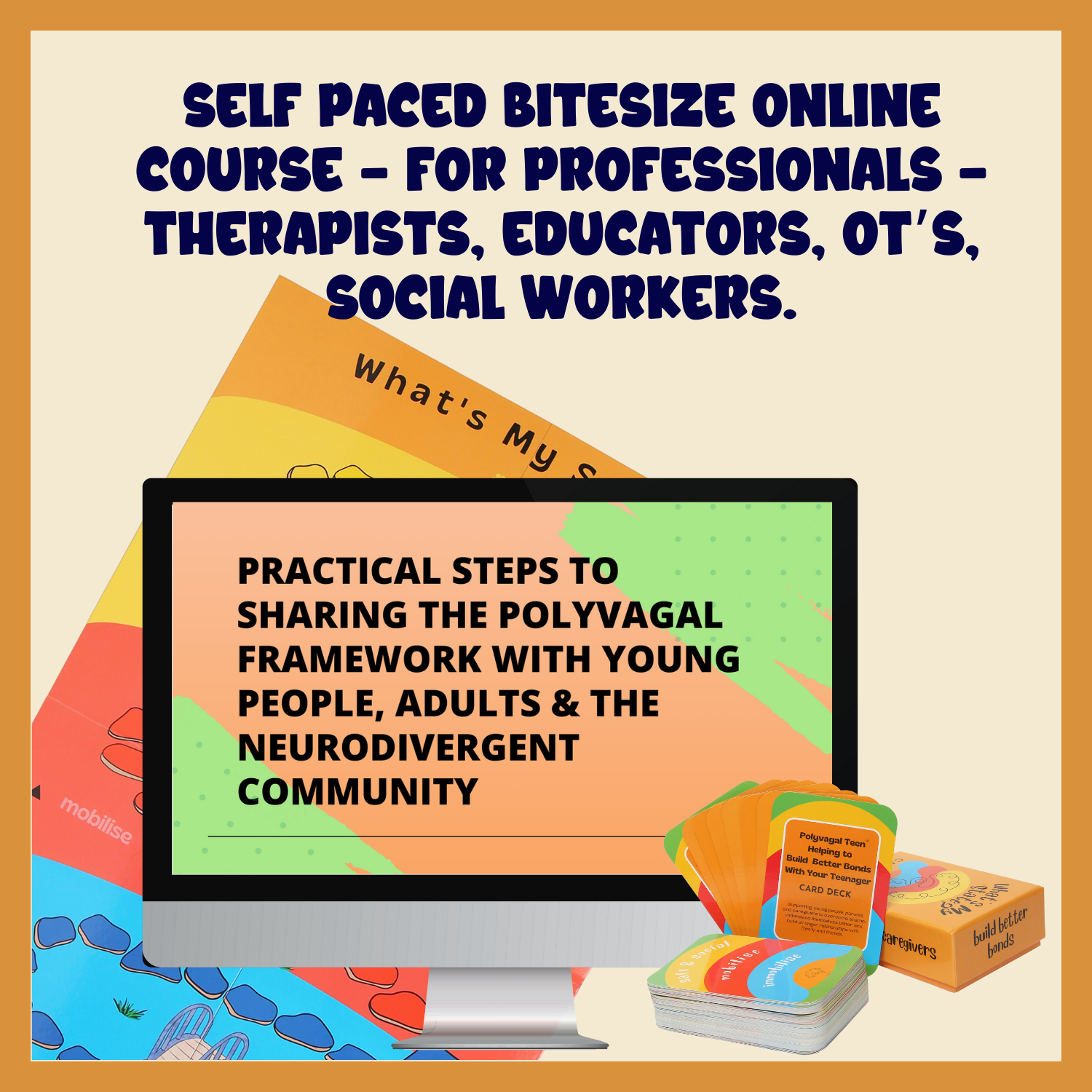
Book One Of Our Programs
Finding Home with The Homestead Model - Starts Feb 20206

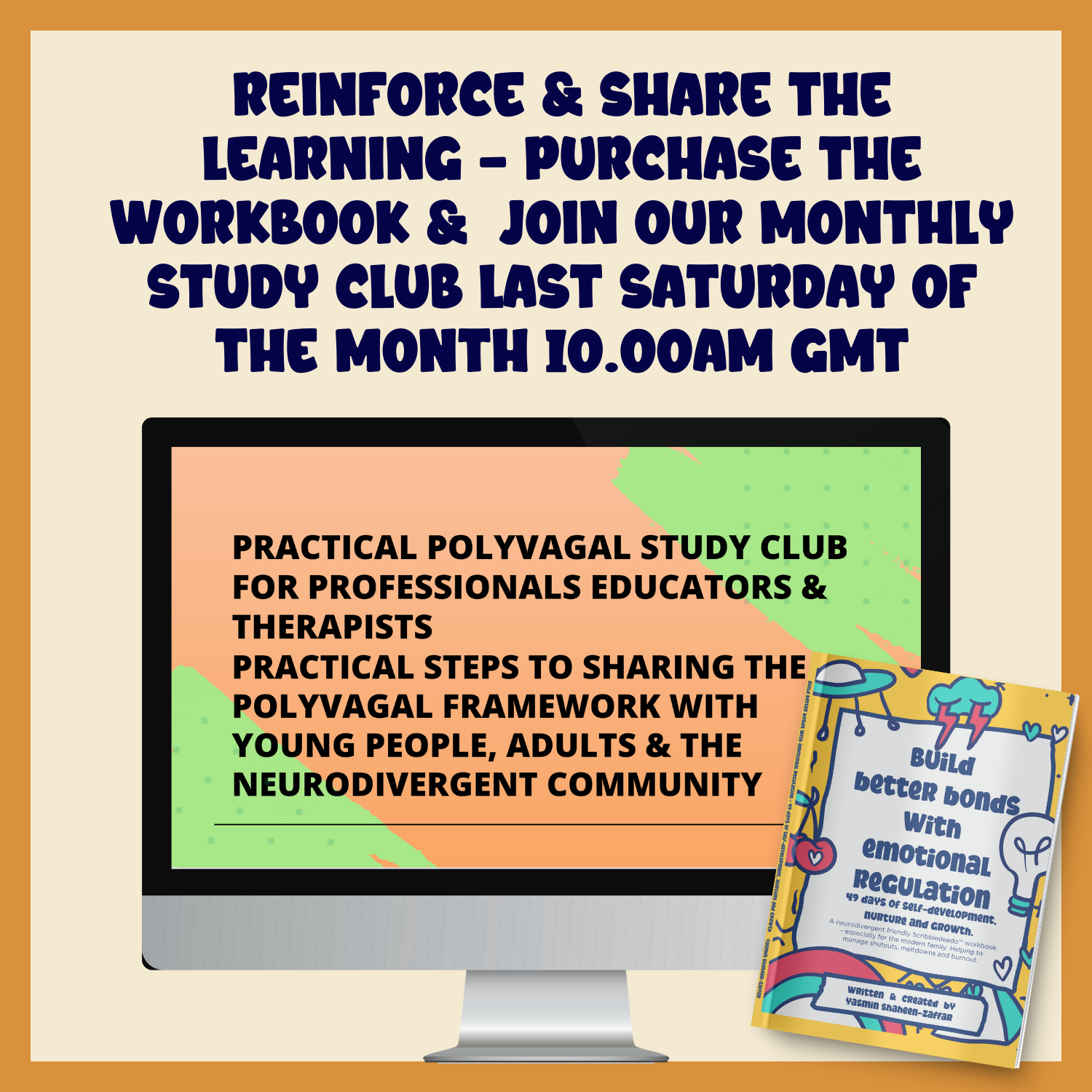
Implement and share your learning.
Join our community for ongoing support and accountability.
Neuro-affirming support for autistic and ADHD young people using polyvagal theory
FAQ'S
Polyvagal Teen® uses polyvagal principles to explain how the nervous system responds to stress and safety – and why behaviour can shift quickly. We turn that science into simple tools to spot patterns, work through tough moments, and take steadier steps.
Constant alerts, noise, sensory overload, social media and social pressure keep bodies on high alert. Our tools help you to get to know your bodies cues to reduce overwhelm and support steadier routines at home and school.
Behaviour comes from nervous-system state – it’s a real-time clue to how the body is doing. By tracking sensations, cues, and triggers (racing heart, clenched jaw, going quiet, pacing, screen avoidance), adults and young people can spot patterns, act sooner, and choose a practical next step. The result is fewer flare-ups, quicker recoveries, and steadier days for families, educators, and wellbeing practitioners – especially helpful for neurodivergent (ADHD/autistic) teens and tweens.
Yes. Everything is neuro-affirming – visual, concrete, choice-based – for ADHD/autistic teens and tweens.
It’s important for young people to understand their nervous system, so that they can build healthy relationships and develop skills like self-regulation.
Taking the time to pay attention to our sensory experiences is a great way of tracking emotions – this helps us put feelings into words, making it easier for us all deal with life challenges in healthier ways. Research suggests that the ability to label an emotion by putting feelings into words can help people better regulate their challenging emotions¹.
These helpful insights don’t come naturally; we learn them mainly through positive relationships early on in life which gives us confidence when faced with adversity throughout adulthood too!
It’s incredibly important to take care of our youth during their development as it can have a serious impact on their mental wellbeing.
Pre-pandemic research has suggested that around half of all potential mental health problems start surfacing in the mid-teens and are three quarters full blown by 25 years old.
Sadly, one out two children struggle with understanding what is wrong so they don’t ask for help or receive proper treatment to manage issues early on³.
Our mission at Polyvagal Teen is to make sure we bring attention to this issue and introduce prevention strategies into young people’s lives while they’re still learning how best cope!
Begin with the Card Deck or the Toolbag and join the self-paced Glad We Talked – Finding My Steady a 5 part better communication program to open safer conversations.

